This article delves into the nutritional benefits, uses, and health impacts of chia seeds and flax seeds, helping you determine which superfood may be the best addition to your diet.
Chia seeds are tiny black or white seeds derived from the Salvia hispanica plant. These seeds are celebrated for their high nutrient content, including fiber, protein, and essential fatty acids. Due to their versatility, chia seeds can be easily incorporated into various recipes, enhancing both flavor and nutrition.
Flax seeds come from the flax plant (Linum usitatissimum) and are rich in omega-3 fatty acids, fiber, and lignans. These components contribute to their popularity among health-conscious individuals, as flax seeds are linked to numerous health benefits, including improved heart health and digestive function.
Both chia and flax seeds offer unique nutritional benefits. Chia seeds contain higher levels of fiber and protein, while flax seeds are particularly noted for their omega-3 content. Below is a comparative table of their nutritional profiles per 100 grams:
| Nutrient | Chia Seeds | Flax Seeds |
|---|---|---|
| Calories | 486 | 534 |
| Protein (g) | 16.5 | 18.3 |
| Fiber (g) | 34.4 | 27.3 |
| Omega-3 (g) | 17.8 | 22.8 |
Chia seeds are praised for their numerous health benefits. They are known to improve digestion due to their high fiber content, which can promote regularity and gut health. Additionally, chia seeds may support heart health by helping to lower cholesterol levels and reduce inflammation.
Flax seeds are recognized for their anti-inflammatory properties and their ability to lower cholesterol levels. Their high lignan content also provides antioxidant benefits. Incorporating flax seeds into your diet may contribute to heart health and overall wellness.
Chia seeds can be easily added to smoothies, oatmeal, or yogurt. They can also be used in baked goods or as a vegan egg substitute by mixing them with water. This not only enhances nutrition but also adds a unique texture to various dishes.
Flax seeds can be sprinkled on cereals, salads, or blended into smoothies. Grinding flax seeds can maximize nutrient absorption, making them a versatile ingredient in many meals. Additionally, they can be used in baking to add a nutty flavor and boost nutritional content.
Both chia and flax seeds may aid in weight loss due to their high fiber content, which can promote feelings of fullness. However, their effectiveness can vary based on individual dietary needs and how they are consumed in meals.
While chia seeds are generally safe for most people, consuming them in large amounts may lead to digestive issues due to their high fiber content. It is advisable to start with small servings and gradually increase intake.
Flax seeds are also safe for most individuals, but excessive consumption can cause digestive discomfort or hormonal imbalances because of their phytoestrogen content. Moderation is key when adding flax seeds to your diet.
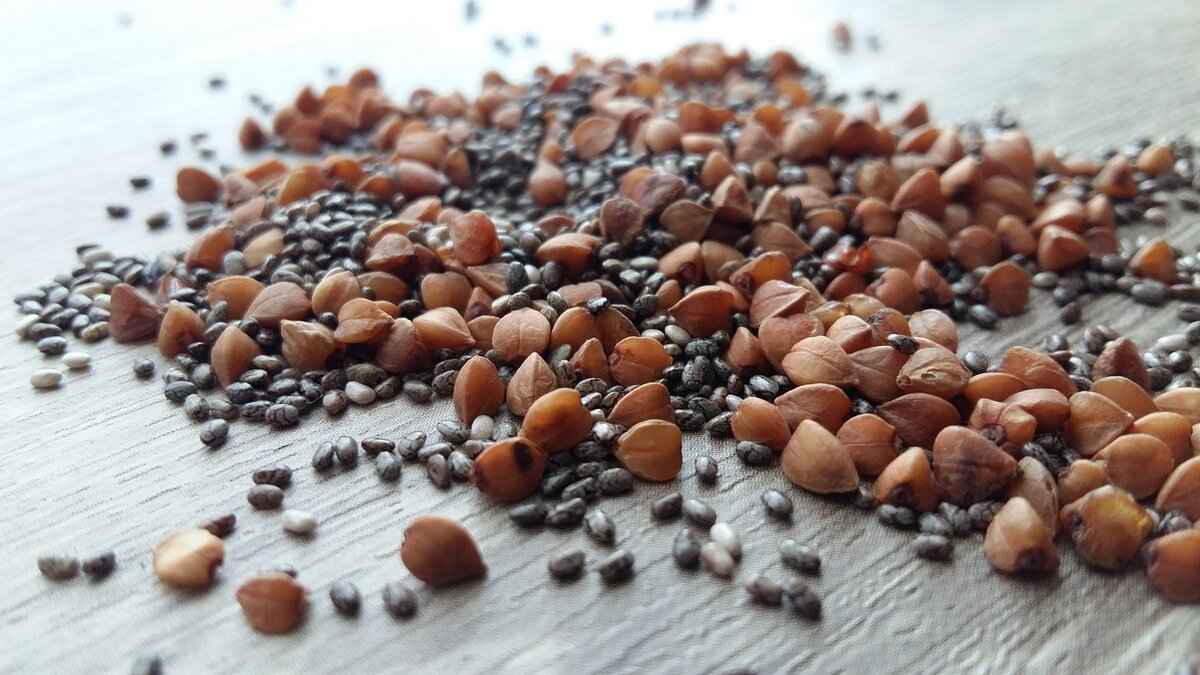
What Are Chia Seeds?
Chia seeds are remarkable little powerhouses that come from the Salvia hispanica plant, native to Central America. These tiny seeds, which can be black or white, are celebrated for their exceptional nutrient profile and versatility in culinary applications. Rich in essential nutrients, chia seeds have gained popularity among health enthusiasts and are often labeled as a superfood.
One of the most notable features of chia seeds is their high content of omega-3 fatty acids, particularly alpha-linolenic acid (ALA). This essential fatty acid is crucial for maintaining heart health and reducing inflammation in the body. Additionally, chia seeds are an excellent source of dietary fiber, which aids in digestion and promotes a feeling of fullness, making them an ideal choice for those looking to manage their weight.
Chia seeds also provide a wealth of other nutrients, including protein, calcium, magnesium, and antioxidants. The protein content in chia seeds is particularly noteworthy, as it contains all nine essential amino acids, making it a complete protein source. This is especially beneficial for vegetarians and vegans seeking plant-based protein options.
In terms of culinary uses, chia seeds are incredibly versatile. They can be added to smoothies, oatmeal, and baked goods, or used to create a chia pudding by soaking them in liquid until they expand and form a gel-like consistency. This unique property allows chia seeds to act as a thickening agent in various recipes, making them a popular ingredient in both sweet and savory dishes.
Moreover, chia seeds can serve as a fantastic vegan egg substitute. When mixed with water, they create a gel that mimics the binding properties of eggs, making them an excellent choice for those following a plant-based diet. This adaptability not only enhances the nutritional value of meals but also caters to diverse dietary preferences.
As a source of antioxidants, chia seeds help combat oxidative stress in the body, which is linked to various chronic diseases. Incorporating chia seeds into your daily routine can contribute to overall health and well-being, making them a worthwhile addition to any diet.
While chia seeds are generally safe for most individuals, it is important to consume them in moderation. Due to their high fiber content, excessive intake can lead to digestive discomfort, particularly if one is not accustomed to a fiber-rich diet. Therefore, it’s advisable to start with small amounts and gradually increase your intake to allow your digestive system to adjust.
In conclusion, chia seeds are not just a trendy food item; they are a nutrient-dense superfood that can enhance your health in numerous ways. Their rich nutrient profile, combined with their versatility in recipes, makes them a valuable addition to a balanced diet. Whether you’re looking to boost your omega-3 intake, increase your fiber consumption, or simply explore new culinary possibilities, chia seeds offer a wealth of benefits that are hard to ignore.
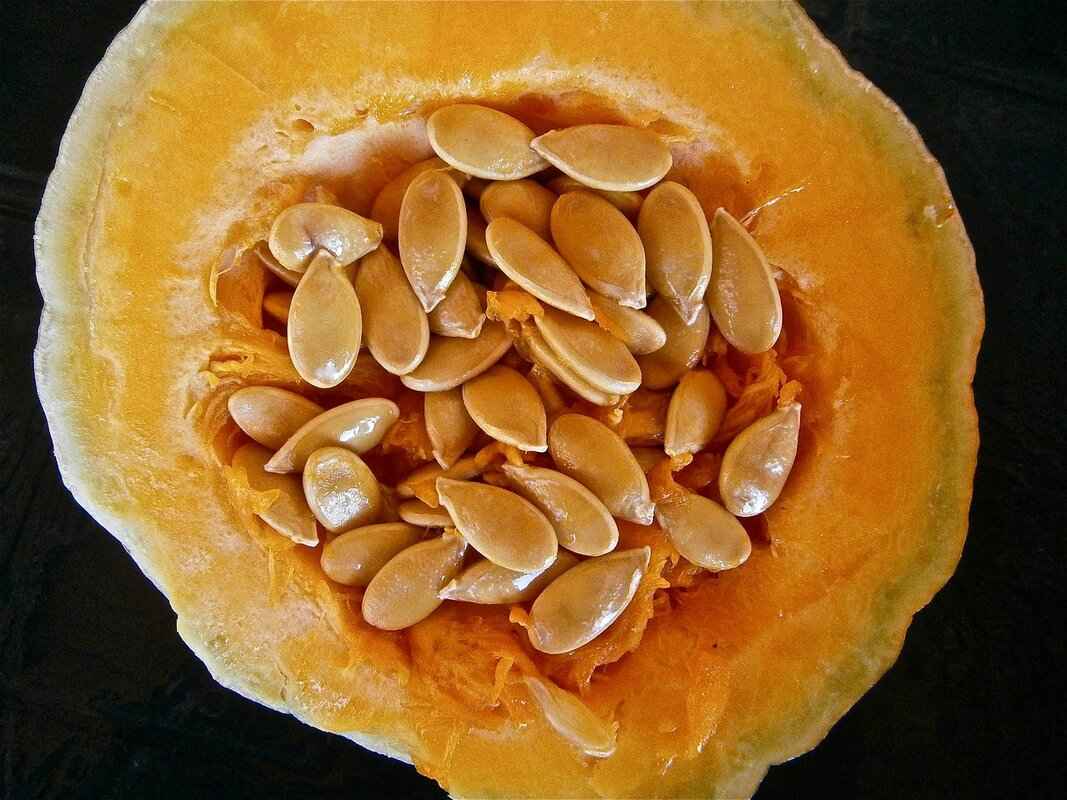
What Are Flax Seeds?
Flax seeds, derived from the flax plant (Linum usitatissimum), have gained significant attention in the health and wellness community due to their impressive nutritional profile. These small, brown or golden seeds are not only versatile but also packed with essential nutrients, making them a popular choice among health-conscious individuals.
One of the most notable features of flax seeds is their high content of omega-3 fatty acids, specifically alpha-linolenic acid (ALA). Omega-3 fatty acids are crucial for maintaining heart health, reducing inflammation, and supporting brain function. Regular consumption of flax seeds can help improve cardiovascular health by lowering blood pressure and reducing cholesterol levels.
In addition to omega-3 fatty acids, flax seeds are an excellent source of dietary fiber. A single serving of ground flax seeds can provide up to 8 grams of fiber, which is beneficial for digestive health. Fiber aids in regular bowel movements, helps control blood sugar levels, and promotes a feeling of fullness, which can be advantageous for those looking to manage their weight.
Flax seeds are also rich in lignans, a type of phytoestrogen that has antioxidant properties. Lignans may play a role in reducing the risk of certain cancers, particularly breast and prostate cancer, by balancing hormone levels in the body. This unique compound can also support heart health by improving cholesterol levels and reducing arterial plaque buildup.
When it comes to incorporating flax seeds into your diet, there are numerous options. They can be consumed whole, but to maximize nutrient absorption, it is recommended to grind them before use. Ground flax seeds can be easily added to smoothies, oatmeal, baked goods, and even salad dressings. Their nutty flavor complements various dishes, making them a versatile ingredient.
For those seeking to enhance their nutritional intake, consider adding flax seeds to your daily routine. They can be sprinkled on yogurt, blended into smoothies, or mixed into pancake batter for added health benefits. Additionally, flax seeds can serve as a vegan egg substitute. To replace one egg, mix one tablespoon of ground flax seeds with three tablespoons of water and let it sit for a few minutes until it becomes gel-like.
While flax seeds offer numerous health benefits, it is essential to consume them in moderation. Excessive intake can lead to digestive discomfort due to their high fiber content. It is generally recommended to limit consumption to about one to two tablespoons of ground flax seeds per day.
In summary, flax seeds are a nutrient-dense superfood that can provide various health benefits, including improved heart health, enhanced digestion, and potential cancer risk reduction. By incorporating flax seeds into your daily diet, you can take a significant step toward improving your overall health and well-being.

Comparative Nutritional Profiles of Chia Seeds and Flax Seeds
When it comes to superfoods, chia seeds and flax seeds often take center stage due to their impressive nutritional profiles. However, while both seeds are celebrated for their health benefits, their compositions reveal significant differences, particularly in omega-3 fatty acids, fiber content, and protein levels. Understanding these differences can help you make an informed choice about which seed may be the best fit for your dietary needs.
Both chia and flax seeds are excellent sources of omega-3 fatty acids, which are essential for heart health and reducing inflammation. However, the type of omega-3s they provide differs. Chia seeds are rich in alpha-linolenic acid (ALA), while flax seeds also contain ALA but in a higher concentration. In fact, one tablespoon of flax seeds provides about 2.4 grams of ALA, compared to 1.6 grams in chia seeds. This makes flax seeds a superior choice for those specifically seeking to boost their omega-3 intake.
When it comes to dietary fiber, both chia and flax seeds are impressive contenders. Chia seeds contain approximately 10 grams of fiber per ounce, while flax seeds offer around 8 grams. The fiber in chia seeds is primarily soluble, which can help with digestion and promote a feeling of fullness. Flax seeds, on the other hand, provide both soluble and insoluble fiber, contributing to gut health and regularity. For those looking to increase fiber intake, chia seeds might be the better option due to their higher soluble fiber content.
In terms of protein, both seeds offer valuable contributions to a balanced diet. Chia seeds contain about 4 grams of protein per ounce, while flax seeds provide approximately 5 grams. While the difference may seem minor, flax seeds also contain higher levels of certain amino acids, making them a more complete protein source. For individuals focused on muscle repair or building, flax seeds may be the preferable choice.
Both chia and flax seeds are nutrient-dense, offering a variety of vitamins and minerals. Chia seeds are particularly high in calcium, magnesium, and phosphorus, making them beneficial for bone health. Flax seeds, on the other hand, are rich in lignans, which have antioxidant properties and may play a role in reducing the risk of certain cancers. This makes both seeds valuable additions to a health-conscious diet.
Ultimately, the choice between chia seeds and flax seeds depends on your specific health goals and dietary preferences. If you are looking for a higher omega-3 content, flax seeds may be the way to go. However, if boosting your fiber intake is your priority, chia seeds might serve you better. Additionally, consider incorporating both into your diet for a broader range of nutrients.
In conclusion, both chia and flax seeds are remarkable superfoods that can enhance your nutrition. By understanding their unique properties, you can make a more informed choice that aligns with your health objectives.
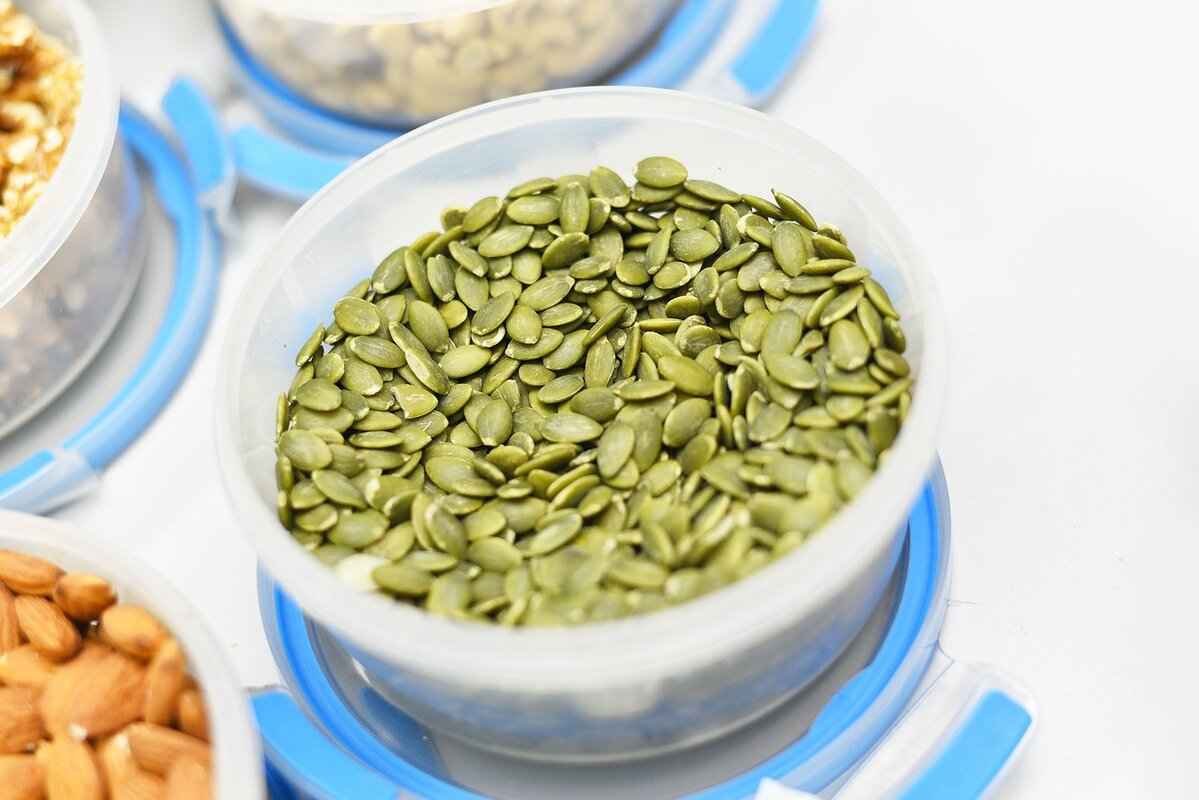
Health Benefits of Chia Seeds
Chia seeds have gained immense popularity in recent years, and for good reason. These tiny seeds, derived from the Salvia hispanica plant, are packed with a variety of nutrients that can significantly contribute to overall health and wellness. In this section, we will delve into the numerous health benefits of chia seeds, highlighting their impact on digestion, heart health, and weight management.
One of the most notable benefits of chia seeds is their ability to promote healthy digestion. Rich in dietary fiber, chia seeds contain approximately 11 grams of fiber per ounce. This high fiber content aids in regulating bowel movements and preventing constipation. When chia seeds are soaked in water, they expand and form a gel-like substance, which can help to bulk up stool and promote its passage through the digestive tract. Additionally, the soluble fiber found in chia seeds can act as a prebiotic, supporting the growth of beneficial gut bacteria.
Chia seeds are also recognized for their positive effects on heart health. They are an excellent source of omega-3 fatty acids, particularly alpha-linolenic acid (ALA), which has been shown to reduce inflammation and lower the risk of cardiovascular diseases. Regular consumption of chia seeds may help to lower cholesterol levels, reduce blood pressure, and improve overall heart function. Furthermore, the antioxidants present in chia seeds, such as quercetin and chlorogenic acid, contribute to heart health by combating oxidative stress and inflammation.
For those seeking to manage their weight, chia seeds can be a valuable addition to the diet. Their high fiber content not only aids digestion but also promotes a feeling of satiation. When consumed, chia seeds absorb water and expand in the stomach, helping to curb appetite and reduce overall calorie intake. This makes them an effective tool for those looking to lose weight or maintain a healthy weight. Incorporating chia seeds into meals can enhance their nutritional value while also providing a satisfying feeling of fullness.
Beyond their fiber and omega-3 content, chia seeds are also rich in other essential nutrients. They are a good source of protein, containing about 4 grams per ounce, which is beneficial for muscle maintenance and repair. Additionally, chia seeds are packed with important minerals such as calcium, magnesium, and phosphorus, which contribute to bone health and overall bodily function. The combination of these nutrients makes chia seeds a nutrient-dense food that can easily be added to a variety of dishes.
One of the best aspects of chia seeds is their versatility. They can be easily incorporated into a variety of meals and snacks. Whether sprinkled on top of yogurt, blended into smoothies, or used as an egg substitute in baking, chia seeds can enhance the nutritional profile of your diet without altering the taste significantly. Their ability to absorb liquid also makes them an excellent thickening agent for puddings and sauces.
In summary, the health benefits of chia seeds are numerous and impactful. From improving digestion and supporting heart health to aiding in weight management, these tiny seeds pack a powerful punch of nutrition. By incorporating chia seeds into your daily meals, you can take a significant step towards enhancing your overall health and well-being.

Health Benefits of Flax Seeds
Flax seeds, derived from the flax plant (Linum usitatissimum), are gaining recognition as a nutritional powerhouse. These tiny seeds are not only rich in essential nutrients but also offer a variety of health benefits that can enhance overall well-being. In this section, we will explore the remarkable health benefits of flax seeds and why they deserve a spot in your daily diet.
Flax seeds are an excellent source of omega-3 fatty acids, particularly alpha-linolenic acid (ALA), which is crucial for heart health. These healthy fats help reduce inflammation and lower the risk of heart disease. Additionally, flax seeds are packed with dietary fiber, which aids in digestion and promotes a feeling of fullness, making them beneficial for weight management.
The anti-inflammatory properties of flax seeds are primarily attributed to their high content of lignans and omega-3 fatty acids. These compounds can help alleviate inflammation in the body, which is linked to various chronic diseases, including arthritis and heart disease. Incorporating flax seeds into your diet may help reduce the risk of these conditions.
Numerous studies have shown that flax seeds can contribute to improved heart health. Regular consumption may help lower cholesterol levels, particularly LDL (bad cholesterol), while simultaneously increasing HDL (good cholesterol). This balance is essential for maintaining a healthy cardiovascular system. Furthermore, the fiber in flax seeds can help regulate blood pressure, further supporting heart health.
Flax seeds are particularly effective in lowering cholesterol levels due to their soluble fiber content. This type of fiber binds to bile acids in the digestive system, which leads to their excretion. As a result, the liver must use cholesterol to produce more bile acids, thereby reducing overall cholesterol levels in the bloodstream. A study published in the journal Nutrition Research indicated that participants who consumed flax seeds experienced a significant reduction in total cholesterol and LDL cholesterol levels.
The high fiber content of flax seeds promotes healthy digestion. It aids in regular bowel movements and can help prevent constipation. Additionally, the soluble fiber in flax seeds acts as a prebiotic, nourishing beneficial gut bacteria and contributing to a healthy microbiome. This is crucial for overall digestive health and can enhance nutrient absorption.
Flax seeds contain phytoestrogens, which are plant-based compounds that mimic estrogen in the body. These compounds can help balance hormones, making flax seeds particularly beneficial for women during menopause. Some studies suggest that regular consumption of flax seeds may help alleviate hot flashes and other hormonal symptoms.
- Add ground flax seeds to smoothies or yogurt for a nutritious boost.
- Sprinkle them on salads or oatmeal for added texture and health benefits.
- Use flaxseed meal as a substitute for eggs in baking, especially in vegan recipes.
- Mix flax seeds into homemade energy bars or granola for a healthy snack.
In conclusion, flax seeds offer a multitude of health benefits, making them a valuable addition to any diet. Their anti-inflammatory properties, heart health benefits, and potential to lower cholesterol levels highlight their importance in promoting overall health. By incorporating flax seeds into your daily meals, you can enjoy these benefits while enhancing your nutritional intake.
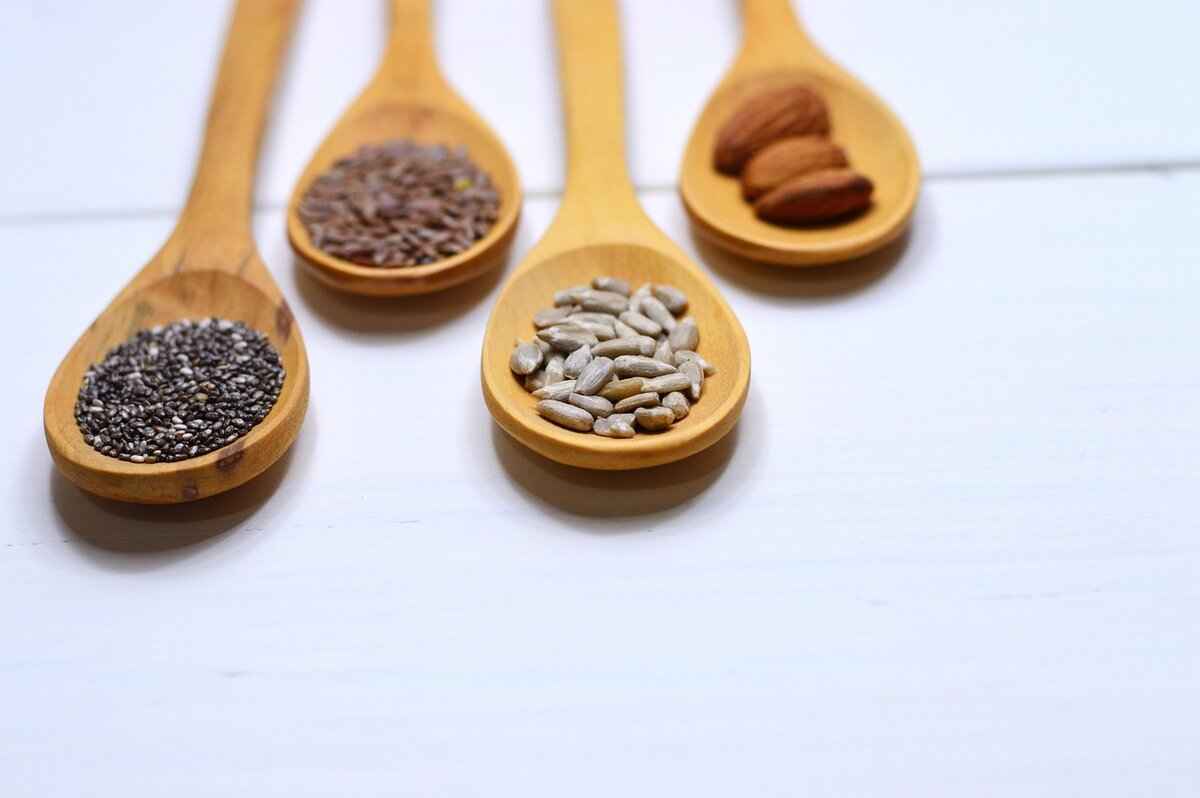
How to Incorporate Chia Seeds into Your Diet
Incorporating chia seeds into your diet is a simple and effective way to boost your overall nutrition. These tiny seeds are packed with essential nutrients, making them a popular choice among health enthusiasts. Here are several innovative and delicious ways to seamlessly add chia seeds to your meals.
Adding chia seeds to your smoothies not only enhances the nutritional profile but also improves the texture. When soaked, chia seeds create a gel-like consistency that can make your smoothies creamier. Simply blend a tablespoon of chia seeds with your favorite fruits, vegetables, and a liquid base such as almond milk or coconut water.
Chia seeds can be easily mixed into your morning oatmeal. They provide a satisfying crunch and boost the fiber content, which helps keep you full longer. To incorporate them, add a tablespoon of chia seeds to your cooking oats or sprinkle them on top before serving. You can also prepare overnight oats by mixing chia seeds with oats and your choice of milk, letting it sit overnight for a quick breakfast.
Chia seeds can be a nutritious addition to your baked goods. They can be mixed into muffins, bread, and cookies for added texture and health benefits. For a vegan option, you can use chia seeds as an egg substitute. To do this, mix one tablespoon of chia seeds with three tablespoons of water, let it sit for about 10 minutes until it thickens, and use it in place of one egg in your recipes.
Sprinkling chia seeds on your salads is an excellent way to add a crunchy texture and a nutritional boost. They pair well with a variety of salads and dressings. Try adding them to a quinoa salad or a mixed greens salad for added protein and omega-3 fatty acids.
Chia seed pudding is a delightful and healthy dessert option. To make it, combine chia seeds with your choice of milk and sweetener, then let it sit in the refrigerator for a few hours or overnight. The seeds will absorb the liquid, creating a pudding-like consistency. You can customize the flavor by adding vanilla extract, cocoa powder, or fruit puree.
Chia seeds can also be added to various beverages, such as juices or infused water. They can provide a unique texture and enhance the drink’s nutritional value. For a refreshing drink, mix chia seeds with lemon or cucumber-infused water and let it sit for a few minutes before consuming.
In conclusion, chia seeds are a versatile ingredient that can enhance the nutritional value of numerous dishes. By incorporating them into smoothies, oatmeal, baked goods, salads, puddings, and beverages, you can enjoy their health benefits while adding variety to your meals. Experiment with these ideas to find the best ways to enjoy chia seeds in your diet.

How to Incorporate Flax Seeds into Your Diet
Flax seeds are a nutritional powerhouse that can easily enhance your meals. These tiny seeds are rich in omega-3 fatty acids, fiber, and lignans, making them a popular choice for those seeking to boost their health. Here are some practical ways to incorporate flax seeds into your daily diet:
- Add to Breakfast Cereals: Sprinkle ground flax seeds over your morning oatmeal or cereal. This simple addition can significantly increase the fiber content and provide healthy fats.
- Mix into Smoothies: Blend a tablespoon of ground flax seeds into your favorite smoothie. This not only adds a nutty flavor but also enhances the nutritional profile, making your drink more filling and satisfying.
- Incorporate into Baked Goods: Substitute a portion of flour with ground flax seeds in recipes for muffins, bread, or pancakes. This not only boosts nutrition but also adds moisture and a unique texture.
- Use as an Egg Substitute: For those following a vegan diet, flax seeds can serve as an excellent egg replacement. Mix one tablespoon of ground flax seeds with three tablespoons of water and let it sit for 5-10 minutes until it forms a gel-like consistency.
- Add to Salads: Toss whole or ground flax seeds into salads for added crunch and nutrition. They pair well with leafy greens, nuts, and vinaigrette dressings.
- Enhance Yogurt or Cottage Cheese: Stir in some ground flax seeds into your yogurt or cottage cheese. This can create a more filling snack or breakfast option while providing essential nutrients.
- Make Flaxseed Oil Dressings: Use flaxseed oil as a base for salad dressings. Its nutty flavor complements many ingredients and adds a dose of healthy fats.
When incorporating flax seeds into your diet, it’s important to grind them for optimal nutrient absorption. Whole flax seeds can pass through the digestive system undigested, meaning you might miss out on their health benefits. A coffee grinder or a high-speed blender can be used to achieve a fine consistency.
Another consideration is to start with small amounts, gradually increasing your intake to avoid digestive discomfort due to their high fiber content. A daily serving of one to two tablespoons is generally recommended for most people.
In conclusion, flax seeds are a versatile ingredient that can be easily integrated into various dishes. Their health benefits, including improved heart health and digestive support, make them a valuable addition to any diet. By experimenting with different recipes and methods of preparation, you can enjoy the numerous advantages that flax seeds offer.

Chia Seeds vs Flax Seeds: Which Are Better for Weight Loss?
When it comes to weight loss, many individuals are on the lookout for effective dietary aids. Chia seeds and flax seeds have emerged as popular contenders in the realm of superfoods, each offering unique benefits. However, their effectiveness in promoting weight loss can vary greatly depending on a person’s individual dietary needs, satiety levels, and the manner in which they are incorporated into meals.
Chia seeds are renowned for their high fiber content, which can promote feelings of fullness and reduce overall calorie intake. When soaked in liquid, these tiny seeds expand and form a gel-like consistency, which can help slow down digestion and prolong satiety. This characteristic makes chia seeds an excellent addition to meals, particularly in smoothies or as a topping for yogurt. Additionally, their omega-3 fatty acids may help reduce inflammation, potentially supporting metabolic health.
Flax seeds, on the other hand, are rich in both soluble and insoluble fiber, which can support digestive health and enhance feelings of fullness. The lignans found in flax seeds may also play a role in regulating hormones related to appetite, further assisting in weight management. Ground flax seeds can be easily added to various dishes, such as oatmeal or baked goods, making them a versatile option for those looking to incorporate them into their diet.
It is essential to recognize that the effectiveness of chia and flax seeds in aiding weight loss can vary from person to person. Factors such as metabolism, dietary preferences, and overall lifestyle can influence how these seeds impact weight management. For instance, individuals who are more sensitive to fiber may find chia seeds more beneficial, while others may prefer the taste and texture of flax seeds.
To maximize the weight loss benefits of chia and flax seeds, consider the following tips:
- Incorporate into Meals: Add chia seeds to smoothies, salads, or overnight oats. Flax seeds can be sprinkled on cereals or mixed into baked goods.
- Monitor Portions: While both seeds are nutritious, moderation is key. Aim for 1-2 tablespoons per day to avoid digestive discomfort.
- Combine with Other Foods: Pair these seeds with protein-rich foods to enhance satiety and support weight loss efforts.
While chia and flax seeds offer numerous health benefits, there are potential drawbacks to consider. Chia seeds, when consumed in large amounts, may lead to digestive issues due to their high fiber content. Similarly, excessive intake of flax seeds can cause hormonal imbalances due to their phytoestrogen content. Therefore, it is crucial to consume these seeds in moderation and consult with a healthcare professional if you have any concerns.
In conclusion, both chia seeds and flax seeds can be beneficial for weight loss, but their effectiveness may differ based on individual factors. By understanding how to incorporate these seeds into your diet effectively, you can harness their potential to support your weight management goals.
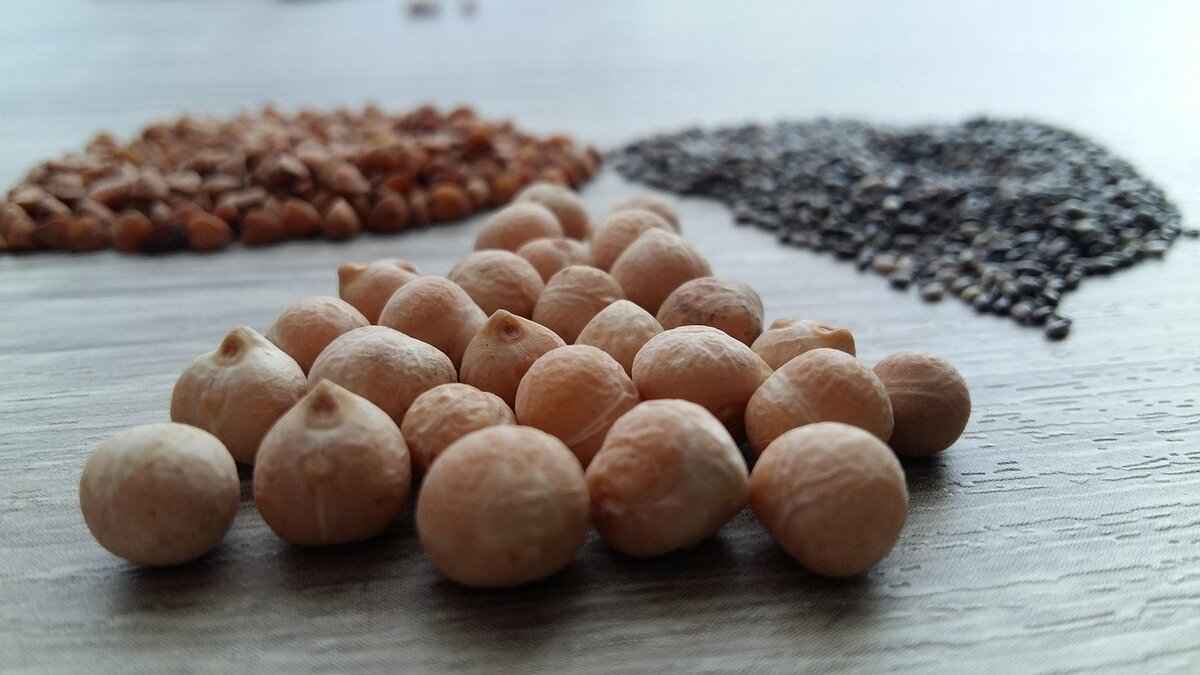
Are There Any Side Effects of Chia Seeds?
Chia seeds have gained immense popularity as a superfood due to their rich nutritional profile. However, it is important to consider the potential side effects associated with their consumption, particularly when taken in large quantities.
While chia seeds are generally considered safe for most people, consuming them in excessive amounts can lead to digestive issues. This is primarily attributed to their high fiber content, which can be beneficial in moderation but may cause discomfort if intake is not carefully managed.
- High Fiber Content: Chia seeds contain approximately 10 grams of fiber per ounce, which is about one-third of the recommended daily intake for adults. Rapidly increasing fiber intake can lead to symptoms such as bloating, gas, and abdominal discomfort.
- Hydration Needs: When chia seeds are consumed, they absorb a significant amount of water, expanding in size. If not properly hydrated, this can lead to gastrointestinal blockages, especially in individuals with pre-existing digestive conditions.
- Allergic Reactions: Although rare, some individuals may experience allergic reactions to chia seeds. Symptoms can include itching, skin rashes, or gastrointestinal disturbances. It is advisable to consult a healthcare professional if any adverse reactions occur.
Moderation is key when incorporating chia seeds into your diet. To minimize the risk of digestive issues, it is recommended to start with a small amount, such as one tablespoon, and gradually increase the serving size while ensuring adequate fluid intake.
Additionally, individuals with certain health conditions, such as irritable bowel syndrome (IBS) or other digestive disorders, should consult a healthcare provider before adding chia seeds to their diet. This ensures that potential interactions or complications are addressed.
In conclusion, while chia seeds offer numerous health benefits, including improved digestion and heart health, it is crucial to consume them responsibly. By being mindful of portion sizes and hydration, you can enjoy the nutritional advantages of chia seeds without experiencing adverse side effects.
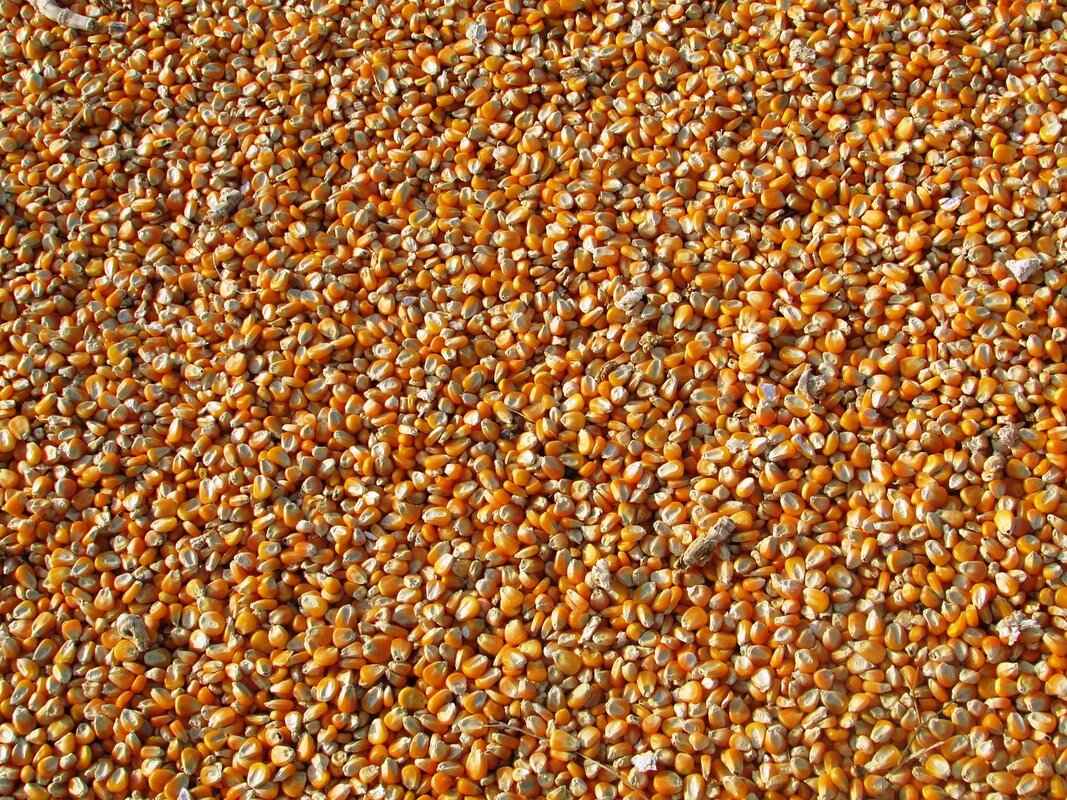
Are There Any Side Effects of Flax Seeds?
Flax seeds, derived from the flax plant (Linum usitatissimum), have gained popularity as a health food due to their rich nutrient profile. They are particularly known for their high content of omega-3 fatty acids, fiber, and lignans, which contribute to various health benefits. However, as with any food, it is essential to be aware of potential side effects associated with their consumption.
While flax seeds are generally considered safe for most individuals, excessive consumption may lead to certain side effects. It is important to understand these effects to ensure a balanced and healthy diet.
- Digestive Discomfort: Flax seeds are high in fiber, which is beneficial for digestive health. However, consuming them in large quantities can cause gas, bloating, and diarrhea. It is advisable to start with a small amount and gradually increase intake to allow your digestive system to adjust.
- Hormonal Imbalances: Flax seeds contain phytoestrogens, which are plant compounds that can mimic estrogen in the body. For some individuals, particularly those with hormone-sensitive conditions, excessive intake may lead to hormonal imbalances. It is crucial for such individuals to consult with a healthcare professional before incorporating flax seeds into their diet.
- Allergic Reactions: Although rare, some people may experience allergic reactions to flax seeds. Symptoms can include itching, swelling, or difficulty breathing. If you suspect an allergy, it is important to seek medical advice promptly.
- Interactions with Medications: Flax seeds may interact with certain medications, particularly those affecting blood sugar levels and blood thinners. If you are on medication, consult with your healthcare provider to ensure that flax seeds do not interfere with your treatment.
To enjoy the benefits of flax seeds while minimizing potential side effects, moderation is key. A typical serving size is about one tablespoon of whole or ground flax seeds per day, which can easily be incorporated into various dishes.
For optimal absorption of nutrients, it is recommended to grind flax seeds before consumption, as whole seeds may pass through the digestive system undigested. Ground flax seeds can be added to smoothies, yogurt, or baked goods, making them a versatile addition to your meals.
In conclusion, while flax seeds are a nutritious food that can offer numerous health benefits, it is essential to consume them mindfully. Being aware of potential side effects and adjusting intake accordingly will help you harness their positive effects without adverse reactions. As with any dietary changes, consulting a healthcare professional can provide personalized guidance tailored to your health needs.
Frequently Asked Questions
- Can I eat chia seeds and flax seeds together?
Absolutely! Mixing chia seeds and flax seeds can give you the best of both worlds. They complement each other nutritionally and can enhance your meals with a variety of textures and flavors.
- How do I store chia seeds and flax seeds?
Both seeds should be stored in a cool, dark place. Chia seeds can last up to two years when kept dry, while flax seeds are best kept in the refrigerator after being ground to preserve their omega-3 fatty acids.
- Are chia seeds better than flax seeds for weight loss?
It depends on your personal preferences and dietary needs! Chia seeds are great for hydration and can help keep you full, while flax seeds provide fiber and healthy fats that support metabolism. Choose based on what fits your diet best!
- Can chia seeds cause any side effects?
While generally safe, consuming too many chia seeds may lead to digestive discomfort due to their high fiber content. It’s best to start with a small amount and increase gradually.
- Do flax seeds have any health risks?
Flax seeds are safe for most people, but excessive intake can lead to digestive issues or hormonal imbalances because of their phytoestrogens. Moderation is key!














